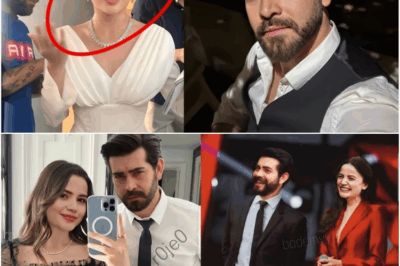Why are people outraged over the punishment of India’s Nimisha Priya, who is imprisoned in Yemen?
.
.
Nimisha Priya’s Voice From a Yemeni Prison: A Nation Divided Over Justice and Compassion
A voice, alleged to be from behind the cold walls of a Yemeni prison, has reignited a storm of debate in India. The voice belongs to a woman—frail, yet determined—who identifies herself as Nimisha Priya, an Indian nurse from Kerala currently on death row in Yemen for the murder of a Yemeni national, Talal Abdul Mehdi. The newly leaked Malayalam audio recording, said to have been sent from her prison cell, has once again divided public opinion across the country.
Her case is not new. It has circulated through media cycles for years, sparking legal, ethical, and diplomatic questions. But with each new update—like this viral voice message—the controversy deepens.
A Desperate Voice Echoes Beyond Prison Walls
The audio clip, which went viral in Malayalam-speaking communities, is claimed to be Nimisha Priya’s direct message to the Indian public and authorities. Though its authenticity has not been officially verified, regional news platforms picked it up, translating it and airing it to wider audiences. In the message, the woman—reportedly Nimisha—details her current condition in prison and pleads for support.
For many listeners, the message humanized her beyond the label of “convicted murderer.” For others, it reopened wounds and anger over a brutal crime.

The Crime That Shook Two Nations
In 2017, Nimisha Priya was arrested in Yemen for the murder and dismemberment of Talal Abdul Mehdi, a Yemeni national who she claimed had subjected her to extensive abuse, blackmail, and illegal confinement. The shocking detail of the case: she allegedly attempted to sedate him with medication, but an overdose led to his death. In a state of panic, she reportedly dismembered his body and disposed of the remains in a water tank.
Yemeni authorities swiftly arrested her, and the evidence presented in court led to a conviction and a death sentence.
The case became even more sensitive due to the diplomatic tension it triggered. While many in India, particularly in Kerala, viewed Nimisha as a victim who made a tragic mistake under duress, Yemeni citizens and the family of the deceased saw it as premeditated murder.
Public Opinion: A Deep Divide
The release of the viral audio recording has reignited a polarizing national conversation. Social media platforms and comment sections have become battlegrounds between two opposing camps:
1. The Supporters: “She has suffered enough”
This group argues that Nimisha Priya was herself a victim—lured into a fraudulent marriage, abused, isolated in a foreign country, and stripped of her passport and freedom. Many believe that the actions she took, though illegal, were born of desperation and fear.
Supporters point to the emotional impact on her family, especially her young daughter who has grown up without a mother. Human rights groups and local activists argue that her punishment has already been severe, with years spent in harsh prison conditions.
“She didn’t intend to kill. She was trying to escape abuse. She has paid the price,” said one advocate in Kerala.
These supporters call on the Indian government to intensify its diplomatic efforts, urging a commutation of the death penalty to a prison term—or even her release.
2. The Opponents: “Justice must prevail”
For others, the crime cannot be excused. This faction, which includes many in Yemen and even some within India, believe that Nimisha must face full legal consequences.
Their primary argument: killing someone and dismembering the body is not justifiable, regardless of past abuse. Some point out that the gruesome nature of the act suggests an effort to conceal the crime, not a cry for help.
“This isn’t about where she’s from. A crime like that deserves punishment anywhere in the world,” said one user on social media.
Many among this group support Yemen’s legal sovereignty, emphasizing that Indian citizenship should not shield one from local laws. For them, granting leniency would send the wrong message about accountability.
A Family’s Plea for Mercy
Amid the debate, Nimisha’s family in India has remained steadfast, pleading for her life. Her mother and close relatives have made repeated appeals, emotionally asking the public and the government to intervene and bring her home.
“She made a mistake, but she’s still our daughter. She’s suffered enough. Please don’t let her die,” her mother said in a tearful interview.
Family members also highlight the trauma experienced by her daughter, who has been raised without her mother since she was a toddler. For them, the death sentence is not just punishment for Nimisha, but a lifelong punishment for a child who had no role in the crime.
Indian Government’s Diplomatic Efforts
In response to growing public pressure, the Indian government has engaged in diplomatic discussions with Yemeni authorities. However, the process has been complex and slow. Yemen, embroiled in years of internal conflict, has a strict legal system, especially concerning foreign nationals.
India has offered legal assistance, and a mercy petition was filed with the Yemeni government. Yet, officials close to the case have admitted that without the victim’s family agreeing to forgive or settle, any intervention is limited.
Yemen’s legal system permits blood money (diya) settlements, where a convicted person’s life may be spared if the victim’s family agrees to accept compensation. But in this case, the family of Talal Abdul Mehdi has shown no intention of pardoning.
The Victim’s Family Speaks Out
Further intensifying the debate, a letter allegedly written by the victim’s brother has also gone viral. In it, he questions the delay in carrying out the sentence and demands swift and harsh punishment.
According to him, justice has already been delayed for far too long, and any attempt to spare Nimisha would be a betrayal of his brother’s memory.
“Would people be this sympathetic if it were their brother who had been killed and dismembered?” he asks.
His voice, though less heard in Indian media, reflects the sentiments of many Yemenis who see the crime as an insult to their national dignity.
14th August: A Date with Fate
The date August 14 has emerged as a crucial point in this story. It is the scheduled review hearing for Nimisha Priya’s case in Yemen, which may determine whether her death sentence will be upheld, commuted, or delayed.
Her supporters have launched online campaigns, prayer events, and diplomatic petitions. On the other side, human rights critics remain cautious, emphasizing that such emotionally driven campaigns should not override legal process.
More Than Just One Case
Beyond Nimisha herself, this case raises broader questions about:
The legal rights of Indians abroad
The responsibility of governments to protect their citizens, even when guilty of crimes
The role of forgiveness in legal systems
Gender-based violence and whether it should be considered a mitigating factor
It also reflects how quickly digital media can shape public discourse. From a leaked audio message to nationwide campaigns, the line between empathy and justice becomes harder to define.
Conclusion: A Nation Torn Between Heart and Law
The story of Nimisha Priya is not just a legal case—it’s a human tragedy, a diplomatic puzzle, and a moral dilemma all rolled into one. Whether viewed through the lens of law, compassion, or justice, it has exposed the deep divides in how we interpret right and wrong, guilt and forgiveness.
As the world watches and waits for the Yemeni court’s decision, one thing is certain: there will be no outcome that satisfies everyone.
For some, justice will only be served through execution. For others, mercy is the highest form of justice.
The voice from the prison may fade, but the echoes of her story will linger—across borders, across hearts, and across the many definitions of justice.
PLAY VIDEO:
News
Mert Ramazan Demir şöyle dedi: “Afra Saraçoğlu için oyunculuğu bırakabilirdim.” 🎬
Mert Ramazan Demir şöyle dedi: “Afra Saraçoğlu için oyunculuğu bırakabilirdim.” 🎬 . . Mert Ramazan Demir: “Afra İçin Oyunculuğu Bırakabilirim”…
Mert Ramazan Demir şöyle dedi: “Afra Saraçoğlu için oyunculuğu bırakabilirdim.” 🎬
Mert Ramazan Demir şöyle dedi: “Afra Saraçoğlu için oyunculuğu bırakabilirdim.” 🎬 . . Mert Ramazan Demir: “Afra İçin Oyunculuğu Bırakabilirim”…
Hazal Subaşı şöyle dedi: “O artık bir baba, ama ben hâlâ o gecedeyim.” 👶
Hazal Subaşı şöyle dedi: “O artık bir baba, ama ben hâlâ o gecedeyim.” 👶 . . “O Geceye Takılı Kaldım”:…
Gülüm bana dedi ki: “Ya ben ve bebeğimiz, ya da Yağmur” 🌹
Gülüm bana dedi ki: “Ya ben ve bebeğimiz, ya da Yağmur” 🌹 . . Gülüm Bektaş’dan Barış Baktaş’a Son Mesaj:…
“Yağmur Yüksel, Barış Baktaş hakkında savcılığa suç duyurusunda bulundu. ⚖️
“Yağmur Yüksel, Barış Baktaş hakkında savcılığa suç duyurusunda bulundu. ⚖️ . . Yağmur Yüksel’den Barış Baktaş’a Suç Duyurusu: Magazin Dünyasında…
Barış Arduç ilk kez gala sonrası konuştu: “Keşke o an yaşanmasaydı” 😔
Barış Arduç ilk kez gala sonrası konuştu: “Keşke o an yaşanmasaydı” 😔 . . Barış Arduç ve Elçin Sangu: Kırmızı…
End of content
No more pages to load










